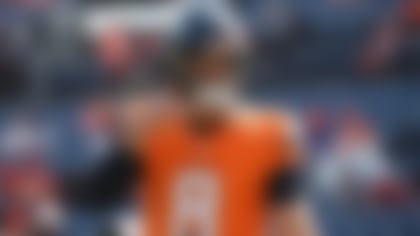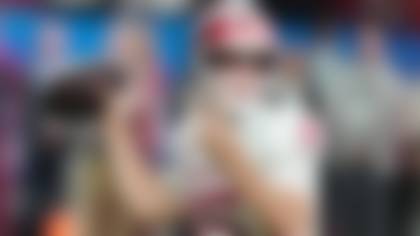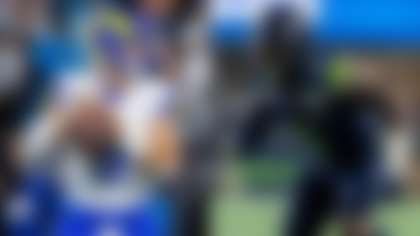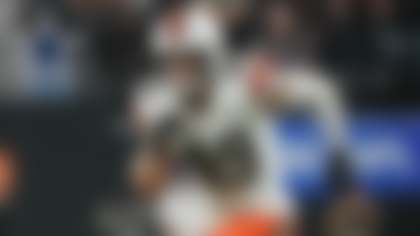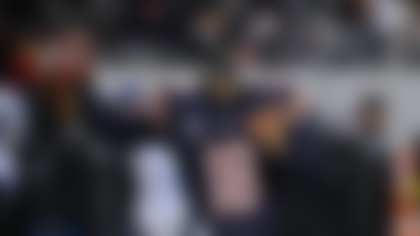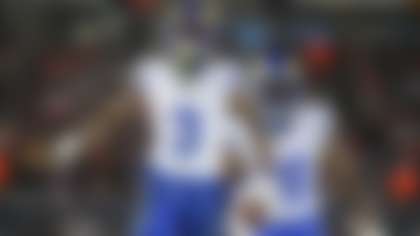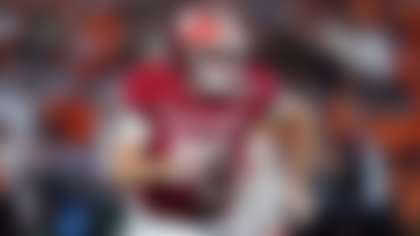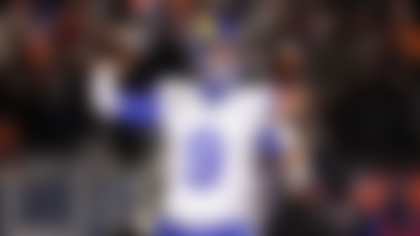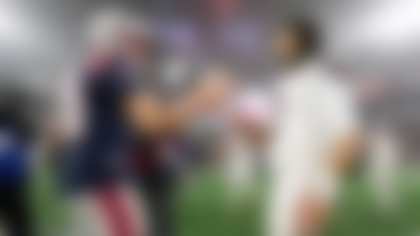For weeks, they kept each other in the dark, just as they had done with both the public and members of their own organization.
San Francisco 49ers coach Kyle Shanahan and general manager John Lynch didn't want to color each other's opinions after swapping first-round picks and trading two future No. 1s and a third-round selection to Miami to move up nine spots in this year's draft. They knew they were going to take a quarterback at No. 3 overall, that much was clear. But which one?
Trevor Lawrence and Zach Wilson were expected to go 1-2, so Shanahan and Lynch narrowed their focus to Alabama's Mac Jones, Ohio State's Justin Fields and North Dakota State's Trey Lance. They attended in-person workouts, participated on Zoom calls with them and studied tape of every throw they made. The one thing they did not do was discuss which player they preferred ... until Monday.
Precisely 31 days after making the blockbuster trade, Shanahan looked Lynch in the eyes and asked: "Are you ready to draft Trey?"
There was silence, then smiles.
"Are you [playing] with me?" Lynch said, brows arched. "Don't [play] with me."
Lance was the player Lynch desired for some time, but he kept it to himself to avoid polluting the process. He thought Shanahan felt the same way, but it's one thing to believe it and another thing to hear it. Later that morning, they informed club CEO Jed York, who was equally excited.
"If you don't have a long-term answer at quarterback," York told me Thursday night, "you have a real problem."
The 49ers have been searching for a franchise quarterback since Steve Young retired after the 1999 season. Among the top prospects at the position this year, Lance is the youngest (he turns 21 on May 9), attended the smallest school and played in the fewest games. But he also is viewed by many scouts as having the greatest potential.
His selection ended what might have been the greatest play fake in recent draft history. Within minutes of the trade with Miami, some in the media began speculating the move was made to acquire Jones, a tall, accurate, productive passer who helped the Crimson Tide to a national title. Shanahan, who was vacationing in Mexico at the time, watched and listened with interest, as did Lynch. It was March 26, and a month remained until the draft. Did he have interest in Jones? Yes. But nothing was close to being decided.
In fact, the 49ers made the trade so they could do deep dives on Lance and Fields and be confident of getting either, if that's where the evaluation process took them. Jones was considered a safety net, if you will, someone they could win a title with but not necessarily a transcendent talent, because he lacks the mobility to consistently turn off-schedule plays into something positive. Jones had the higher floor, but Lance and Fields were thought to have the higher ceilings, which is important because of how the league is progressing.
There is danger if an offense or defense becomes stagnant or predictable. Lynch learned this during his playing days in Tampa, where the team's Cover 2 system lost some of what made it special when more clubs began running the same defense and poaching players from the Bucs. The unit was still effective, but opponents got a better feel for it the more they saw it on tape.
For Shanahan, concepts derived from his offense are becoming more prevalent as friends and past associates -- think Sean McVay in Los Angeles and Matt LaFleur in Green Bay -- utilize them in their play calls and play design. By drafting Lance, Shanahan will be able to expand his playbook and utilize Lance's ability as a runner as well as a passer. Teams will have to play 11-on-11 instead of 11-on-10, because they'll be forced to account for the quarterback in the run game.
That's why Shanahan and Lynch sat back and watched with curiosity as outsiders made it appear as if Jones to San Francisco was a fait accompli. They didn't attempt to change the narrative, because there was no point. Even if Jones were their guy in the end, what would be gained by showing their cards?
While the end result took center stage Thursday night, what transpired behind the curtain is equally compelling, because it means the sand will soon run out on incumbent QB Jimmy Garoppolo's time with the team. He has this year and next remaining on the $137.5 million contract he signed in February of 2018, at just over $24 million per season, and he is regarded as a talent, having helped the 49ers reach the Super Bowl two seasons ago. But the most important ability of any player is availability; in comments to reporters earlier this week, Shanahan acknowledged "it's been very tough for us when [Garoppolo has] been hurt." The 49ers were unwilling to hold their breath that Garoppolo could be counted on physically.
He has played only one full season in three full seasons since being acquired in a trade with New England in October of 2017. In 2018, Garoppolo missed 13 games due to injury, and last season, he missed 10 more. The 49ers simply did not feel it was smart to bet against history, particularly knowing an extension for Garoppolo beyond 2022 could ultimately cost them in the neighborhood of $40 million annually. They looked at how the Seahawks were able to build out their team and reach two Super Bowls with quarterback Russell Wilson on a rookie deal; how the Rams were able to supplement their roster and reach a Super Bowl with QB Jared Goff on a rookie contract; and how the Cardinals have been able to rebuild more quickly with signal-caller Kyler Murray on a rookie deal.
With Lance on a rookie contract, the team, conservatively speaking, can save $150 million against the cap over the next five years, presuming San Francisco moves on from Garoppolo after the 2021 season -- a reality that would not be possible if it had Garoppolo on an extension. The significance is that it allows the 49ers to more comfortably sign defensive pillars Fred Warner (the linebacker's rookie contract runs out after this season) and Nick Bosa (the pass rusher can be kept on his rookie contract through 2023) to extensions, as well as make strategic strikes in free agency.
And yet, the trade could not have happened if not for York having complete trust in Shanahan and Lynch to make the right call. That's an important element in the story. Some executives make bold deals out of fear, others out of desperation. But this one came from a place of trust.
"If you don't have a long-term answer at quarterback, you have a real problem." Jed York
Shanahan is entering his fifth season in San Francisco, so there was no hesitation in this instance. Whether the confidence is warranted or not is debatable, considering the 49ers, in Shanahan's first season, passed on quarterbacks Patrick Mahomes and Deshaun Watson in the 2017 NFL Draft, selecting defensive tackle Solomon Thomas third overall instead. He and Lynch also traded up for C.J. Beathard in Round 3 that year and believed Nick Mullens could be the answer; their combined record at quarterback was 7-21 the past three seasons.
Despite those misses, York believes Shanahan, one of the game's best offensive minds, deserves the opportunity to select his own quarterback, adding: "There's nobody I'd rather put a rookie, young quarterback in the hands of than Kyle."
Interestingly, shortly after the trade was made, York phoned former 49ers running back Frank Gore and asked if he knew any of the top quarterback prospects. York and Gore have remained close since the running back left the franchise in 2015, after 10 seasons. York values his evaluation of players and wanted to know what Gore thought.
"Just take a look and let me know what you think," York said, regarding Lance.
Weeks passed without any word. Until York's phone rang Tuesday night. It was Gore. He wanted to talk, but York was putting down his kids for the night and didn't answer. Then York's phone pinged. It was a text from Gore.
"CALL ME," it read, all caps.
Gore had watched the tape. Suffice it to say, he was wowed.
"You don't give up all that for a pocket passer," Gore told me. "You don't give up all that and still need to call a perfect play for a guy. This guy can make plays even when the call ain't perfect. He has a chance to be special in that offense."
Follow https://twitter.com/JimTrotter_NFL" target="_blank" >Jim Trotter on Twitter.


